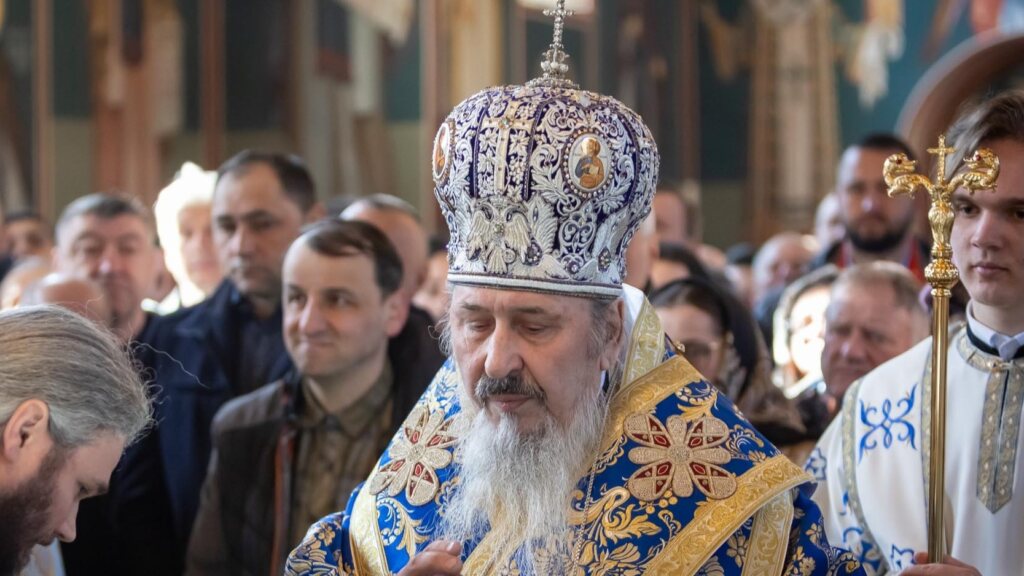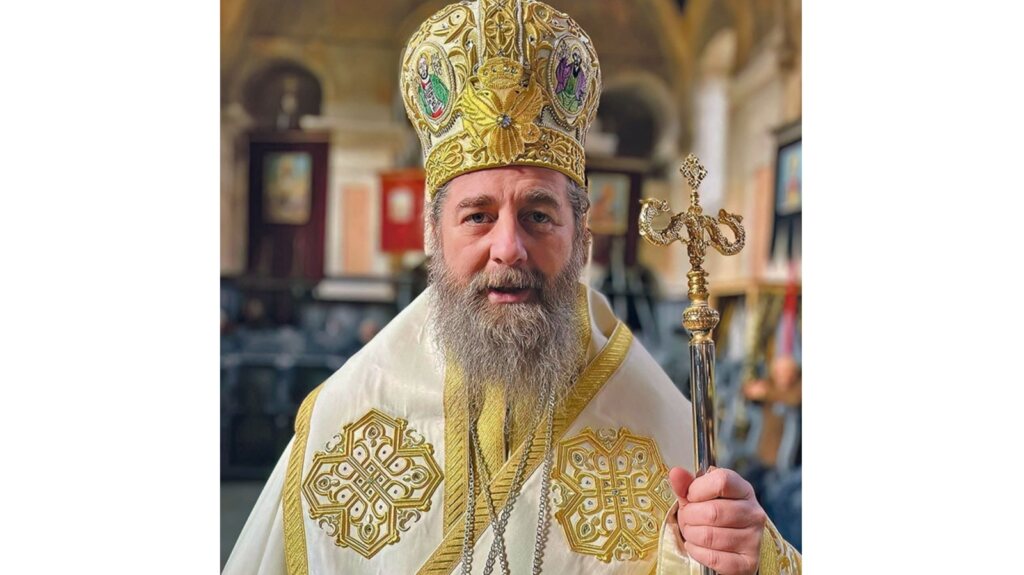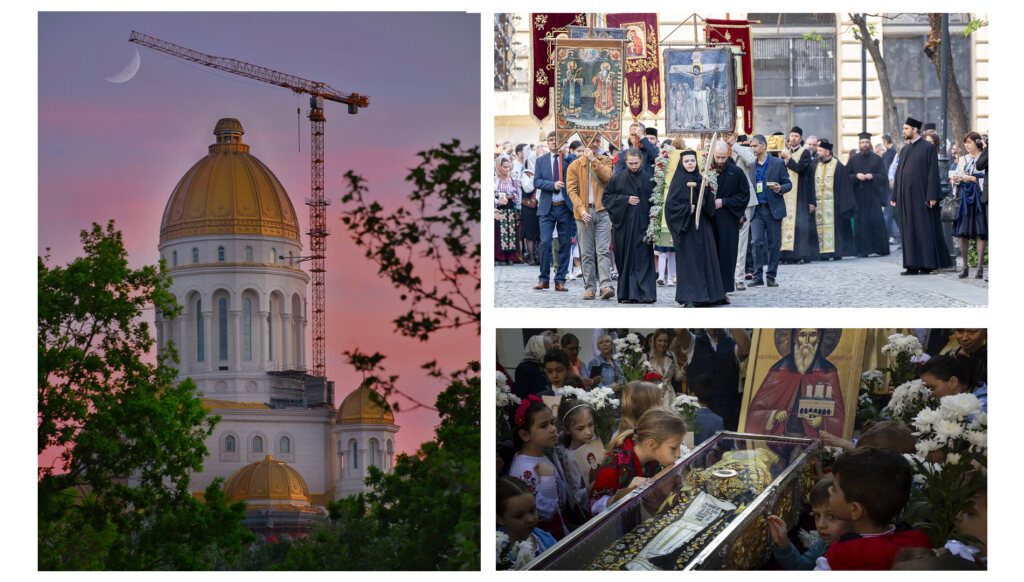Synaxis of the Ecumenical Teachers and Hierarchs
Synaxis of the Three Hierarchs: Basil the Great, Gregory the Theologian and John Chrysostom: During the eleventh century, disputes raged in Constantinople about which of the three hierarchs was the greatest. Some preferred Saint Basil (January 1), others honored Saint Gregory the Theologian (January 25), while a third group exalted Saint John Chrysostom (November 13).
By the will of God, the three hierarchs appeared to Saint John the Bishop of Euchaita (June 14) in the year 1084, and said that they were equal before God. “There are no divisions among us, and no opposition to one another.”
They ordered that the disputes should stop, and that their common commemoration should be celebrated on a single day. Bishop John chose January 30 for their joint Feast, thus ending the controversy and restoring peace.
Troparion — Tone 1
Let us who love their words gather together / and honor with hymns the three great torch-bearers of the triune Godhead: / Basil the Great, Gregory the Theologian and John Chrysostom. / These men have enlightened the world with the rays of their divine doctrines. / They are sweetly-flowing rivers of wisdom / filling all creation with springs of heavenly knowledge. / Ceaselessly they intercede for us before the Holy Trinity!
Hieromartyr Hippolytus the Pope of Rome
The Hieromartyr Hippolytus, and the Martyrs Censorinus, Sabinus, Chryse the Virgin and 20 Others suffered during the third century.
When Saint Hippolytus, Bishop of Rome, learned of the suffering of the martyrs, he appeared before the governor despite his advanced years and rebuked the torturers for their inhumanity. The enraged governor sentenced the holy bishop to be tortured. After long torments, they tied him hand and foot and threw him into the sea.
Saint Censorinus was a high-ranking magistrate during the reign of the Roman emperor Claudius II (268-270). He was arrested and thrown into prison for his faith in Christ. By the grace of the Lord Jesus Christ he raised up a dead man. As a result, twenty soldiers and prison guards were converted to Christ. They were beheaded with Saint Censorinus. Then the virgin Chryse was brought for interrogation. She bravely confessed herself a Christian and was subjected to torture. After horrible torments, she was drowned in the sea.
Saint Sabinus had heavy rocks tied around his neck, and then they hung his body on a tree and burned his sides with torches. In his torments, he gave up his holy soul to the Lord.
With Saint Chryse suffered the martyrs Ares, Felix, Maximus, Herculianus, Venerius, Stiracius, Mennas, Commodus, Hermes, Maurus, Eusebius, Rusticus, Monagrius, Amandinus, Olympius, Cyprus, Theodore the Tribune, Maximus the Presbyter, Archelaus the Deacon, and Cyriacus the Bishop.
All these Roman martyrs suffered in the year 269. The relics of the Hieromartyr Hippolytus were put in the church of the holy Martyrs Laurence and Pope Damasus at Rome. Saint Hippolytus was a disciple of Saint Irenaeus, Bishop of Lugdunum (Lyons in France), and he is also renowned as a Christian theologian who wrote many treatises against the heretics.
Saint Hyppolitus compiled a Paschal Canon, the famous Apostolic Tradition, “On Christ”, and a “Treatise on the Antichrist.” Saint Hippolytus also wrote many commentaries on Holy Scripture, on the Biblical Books: Genesis, Exodus, Proverbs, Ecclesiastes, the Song of Songs, and on the Gospels of Matthew, Luke and John, and on the Prophets Isaiah, Ezekiel, Daniel, Zechariah, on the Psalms of David and on the Apocalyse. Part of his works are preserved only in fragments. His discourses, devoted to the Theophany and the Prophet Daniel, are preserved in full. His discourses demonstrate his masterful style of preaching. He was one of the last Western Fathers to write in Greek.
Troparion — Tone 4
Your holy martyrs, O Lord, / through their sufferings have received incorruptible crowns from You, our God. / For having Your strength, they laid low their adversaries, / and shattered the powerless boldness of demons. / Through their intercessions, save our souls!
Tr by oca.org






